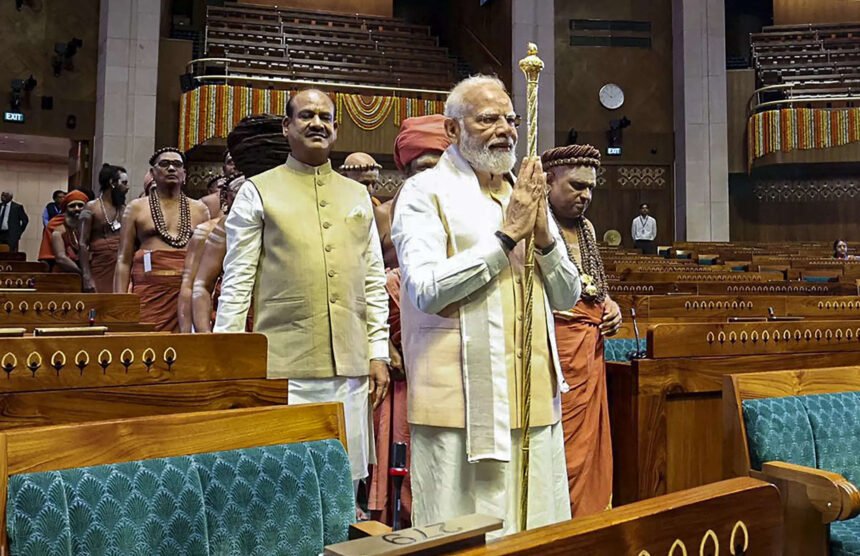The installation of the historic scepter, known as ‘sengol’, by Prime Minister Narendra Modi in the new Lok Sabha chamber has sparked a controversy, with Congress leader Shashi Tharoor offering his perspective on the matter. Tharoor, a senior Congress MP from Thiruvananthapuram, acknowledged that both sides of the argument had valid points.
In a tweet, Tharoor stated, “My view on the #sengol controversy is that both sides have good arguments. The government rightly argues that the scepter reflects a continuity of tradition by embodying sanctified sovereignty and the rule of dharma. The Opposition rightly argues that the Constitution was adopted in the name of the people and that sovereignty abides in the people of India as represented in their Parliament, and is not a kingly privilege handed down by divine right.”
The government has claimed that the ‘single’ was presented to Jawaharlal Nehru, India’s first prime minister, on the night of August 14, 1947, symbolizing the transfer of power from British rule to Indian hands.
However, the Congress party, including its member Jairam Ramesh, has labeled the government’s claims as “bogus.” Ramesh stated that the scepter was presented to Nehru by a religious institution in then Madras (now Chennai). He further emphasized that there is no documented evidence to support the idea that Mountbatten, Rajaji, and Nehru described the scepter as a symbol of the transfer of power from Britain to India. Ramesh dismissed all claims suggesting such as baseless.
Tharoor suggested that the two positions could be reconciled by setting aside the disputed claim that the scepter was handed to Nehru by Mountbatten to symbolize the transfer of power, as there is no evidence to support this story. Instead, Tharoor proposed embracing the single scepter as a traditional symbol of power and authority. Placing it in the Lok Sabha would then represent India’s affirmation that sovereignty resides with the Parliament and the people, not with any monarch. Tharoor encouraged embracing this symbol from the past to reaffirm the present values.
The controversy surrounding the single scepter reflects differing perspectives on the significance of historical symbols and their relevance in the present context. It highlights the ongoing debates within Indian politics regarding the relationship between tradition, symbolism, and the democratic ideals enshrined in the country’s constitution.
